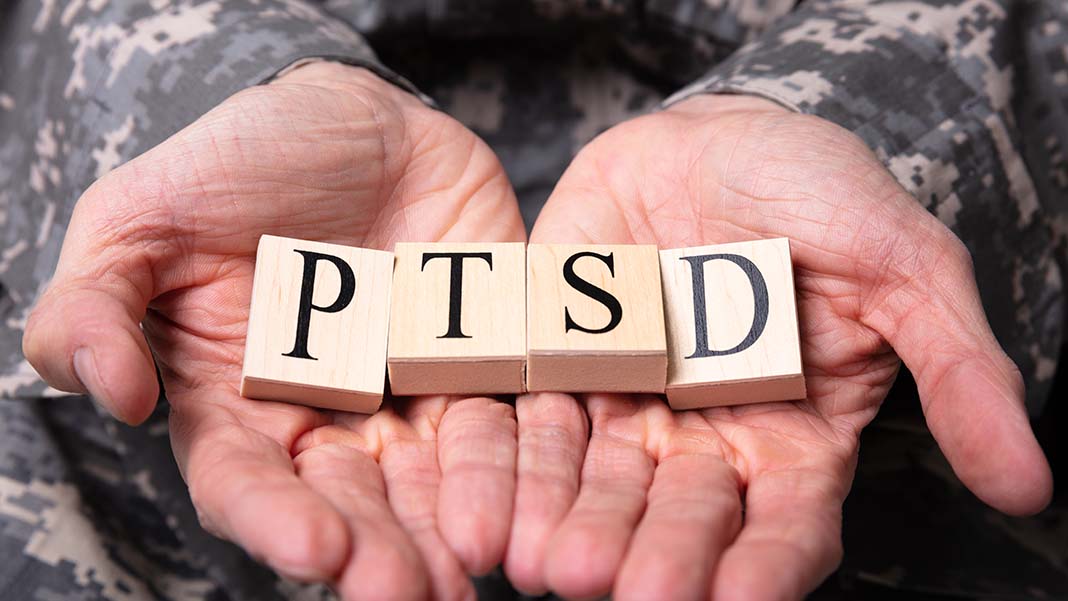When we come across the terms “PTSD” or “trauma,” and the impact of it on relationships and intimacy, which is not uncommon, we may end up assuming that the person being talked about was either sexually victimized, and as a response to the traumatic event they have become emotionally numb and have shut down. While this is true in the case of many survivors of sexual abuse, it is equally important to consider what are other forms of trauma which can be the cause of avoidance of intimacy in relationships. Survivors with PTSD may begin to feel distant from others and may feel numb. They may lose interest in social or sexual activities. Some of the symptoms experienced by the survivors are feeling irritable, on guard, jumpy, worried, or nervous, and they may not be able to relax or develop intimate relationships. They may also feel an increased need to protect their loved ones from any sort or distress or danger that may befall them.
Let us first attempt to understand what is PTSD. The Diagnostic and Statistical Manual of Mental Disorders (DSM-V) defines post-traumatic stress disorder as a disorder having the potential to be developed by an individual after experiencing or witnessing a traumatic event or chronic, recurring traumatic events and comprises of four key features which are:
intrusive symptoms
avoidance behaviours
self-destructive behaviours
changes in mood
Commonly experienced issues with avoidance of intimacy may comprise of feeling engulfed or trapped with their romantic partner or with a family member or close friend with whom they share an intimate and significant relationship. This may behaviourally experience the “push-pull” situation wherein they may push away or run from a relationship, while the other person pulls close or chase them. Individual differences, personal histories, and avoidant behavioral features can distinguish the two. However, it is a much more complex situation than a mere behaviour of walking away or avoiding relationships altogether.

Some individuals battling PTSD commonly report that they often feel emotionally numb or disconnected from people around them despite being willing to form connections. This may include the fear of being abandoned, fear of being rejected, feelings of social isolation, feeling engulfed, emotionally, or having the need to constantly seek the approval or validation of others.
Because of these feelings such experiences, their stress levels mount, and they may begin to avoid situations or people who they feel “trigger” their vulnerable emotions which range from love to anger, from fear to shame, as commonly reported. Essentially, avoiding the feelings that cause significant distress can result in avoidant behaviour, which can lead to the person suffering from PTSD be caught in a self-defeating vicious cycle and staying disconnected from others.
Emotional numbing, or avoidant behaviour, can affect the quality of a person’s life; they may lose interest in activities they once enjoyed, there may be increases in interpersonal/relationship problems, and/or a detachment or inability to remain emotionally close to others. Similarly, fight/flight behaviour and self-sabotaging behaviour are reported, which can exacerbate avoidance of intimacy.
Consider the example of a child who grew up in a family environment that was invalidating or abusive where they were not allowed to voice their thoughts and opinions, felt unheard by their parents, or were physically or emotionally abused. This can stay with them throughout their childhood and accompany them into adulthood which in turn impacts the quality of their relationships later in life. If the child ends up developing an insecure or avoidant attachment style from prolonged exposure to abuse, they may begin feeling emotionally engulfed and may constantly fear abandonment or rejection from their partner, which may result in avoidant behaviour or the tendency to run away from relationships, desiring solitude and leaving intimate relationships anytime they may feel overwhelmed, emotionally.
Helping people battling with PTSD strive through their emotional “triggers,” coping with their distracted behaviour, and helping them get comfortable with can be challenging because the avoidant behaviour makes the person feel numb a person due to feeling overwhelmed or by being emotionally vulnerable. When individuals push away the emotions that they feel or minimize them, then ultimately the symptoms of PTSD become more intense and persist for a longer duration.
It is essential to create a safe space for an individual who is experiencing emotional engulfment, or avoidant behaviour or any other symptom of PTSD in order to empower them. Family members and intimate partners can play a significant role in lessening the avoidant reactions, which includes being sensitive to their sense of autonomy, positively reinforcing them, offering them unconditional positive regard, attempting to focus on their positive qualities and making them recognize the same and by using humour as an attempt to de-escalate and lighten up a stressful situation and help in buffering against the avoidant behaviour.
Similarly, the person battling PTSD may benefit from keeping a track of their own responses to various environmental stimuli that seem to trigger the avoidant behaviour in order to calm themselves, redirect their behaviour. Support must be offered to them in order to empower them to better understand their emotions and foster awareness.
Visit TalktoAngel to talk online with the best mental health professionals. You can search by “Online counsellor” or “Online counselling” regardless of the search criteria.
